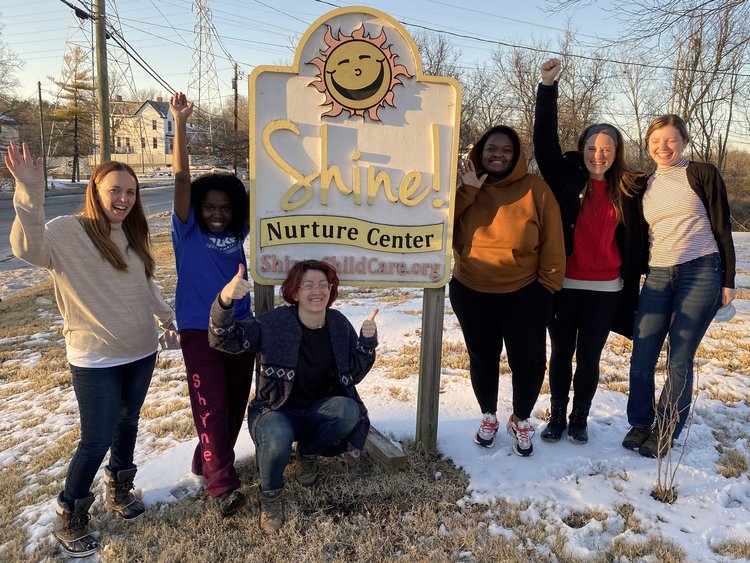Capital investments and technical support helping grow employee ownership
by Karen Kahn

ICA Group announces ten co-op conversions for 2021
As businesses struggled to find their footing after the first year of the pandemic, the ICA Group worked with their clients to create worker cooperative structures that positioned the businesses for future success and aligned their companies with their values. Of the new worker co-ops, six are in the New York City metropolitan area, where ICA has been a key partner in the Employee Ownership NYC, an initiative of the DeBlasio administration. Others include Nestling House, a childcare center in Milwaukee; Byggmeister, a sustainable design-and-build firm in Newton, MA following in the footsteps of South Mountain Company; and Caktus Group, a web development company in Durham, NC. All three transitioned ownership from founders to employees.
Co-op Cincy announces its first two transitions
In the first quarter of 2022, Coop Cincy completed transitioning two businesses to worker ownership: the Shine Nurture Center, which is a childcare center, and Heritage Hill, an apparel company. Coop Cincy’s Business Legacy Fund provided financing and technical assistance to support the transitions.
Shine Nurture Center, which operates in the Mt. Airy neighborhood, became a worker-owned cooperative in January. The founding owner, Katie McGoron, sold the business to five of her employees.
“Selling to the workers was such a good option for the owner because she wanted to preserve her legacy and keep the business in the hands of the people who had helped her build it,” said Ellen Vera from Co-op Cincy.
Heritage Hill sells apparel to historically Black colleges. Owner Brandon Z. Hoff was in search of a business model that would allow him to “participate in capitalism without being predatory.” When Hoff heard about the co-op model, it made sense to him. “I really want people who work in the company to have an opportunity to benefit from the company.”
The long tradition of co-ops in the Black community attracted Hoff as well. “This has been very important for Black Americans,” he said, “since there has been a history of disenfranchisement and discrimination. Black people have had to work together.”
Heritage Hill completed its transition to a worker-owned cooperative in February. Currently, the business has three worker owners, with two additional workers considering membership.
Good Scout Capital focuses on building inclusive economy
“If we’re serious about scaling worker ownership, what’s really needed is not just loans but active capital or organized capital,” says Marjorie Kelly, senior fellow at The Democracy Collaborative (TDC), during a panel discussion sponsored by Good Scout Capital. Kelly, along with TDC’s Isaiah Poole joined Kate LaTour from National Cooperative Business Association and Mo Manklang from the U.S. Federation of Worker Cooperatives to discuss the future of inclusive capitalism. In addition to organized capital, panelists highlighted the need for a stronger cooperative movement to educate the public, build an ecosystem, and “rewire the way we do economic development.” Read more of the edited conversation here.
If we’re serious about scaling worker ownership, what’s really needed is not just loans but active capital or organized capital.”
–Marjorie Kelly, senior fellow at The Democracy Collaborative
Three coops receive $125,000 from National Cooperative Bank
The National Cooperative Bank announced its annual co-op awards. This year’s winners include three organizations working to fundamentally transform the business models of their particular sectors. The Driver’s Cooperative received a $50,000 grant to grow its worker-owned ride-share platform, which currently operates in New York City. Main Street Phoenix Worker Cooperative, a cooperatively owned holding company based in Boulder, CO, received $25,000. Through acquisition of restaurants and other small businesses such as child care and personal care services, Main Street Phoenix aims to build income security, wealth and quality jobs for people of color, women, and undocumented workers. The third winner is East Bay Permanent Real Estate Cooperative, which received $50,000 to support creating pathways for residents of Oakland and surrounding communities to organize, finance, acquire, and co-steward land and housing.
Rutgers launches online course for business owners of color considering an employee-ownership exit
The Rutgers School of Labor and Management has introduced a free online program that guides business owners through the process of selling their businesses to their employees through an employee stock ownership plan (ESOP) or worker cooperative. The program, funded by the W.K. Kellogg Foundation, is run through the New Jersey/New York Center for Employee Ownership, which created the program in conjunction with the Democracy at Work Institute. The online program enables business owners to learn at their own pace through a series of easy-to-navigate modules, delivered by instructors of color with real-world experience in their subject area. – Timothy Garbinsky, National Center for Employee Ownership
Karen Kahn is a communications consultant and the editor of Employee Ownership News.
To follow Employee Ownership News, subscribe to the Fifty by Fifty newsletter or follow us on Medium.
